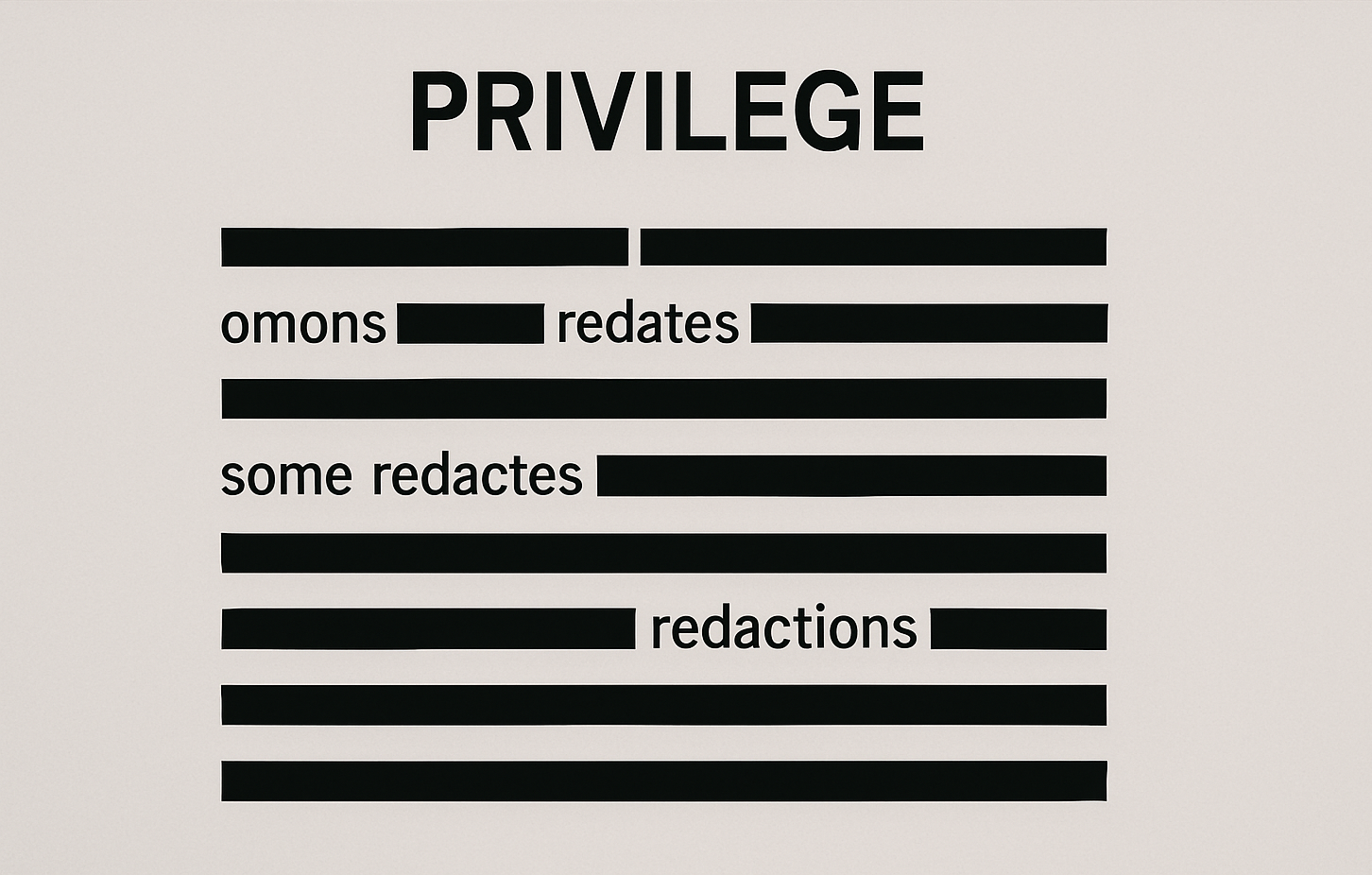When preparing for document review in litigation matters and regulatory investigations, an effective guidance document is more than a helpful tool, it’s a critical asset. Especially in cases involving high volumes of electronically stored information (ESI), a well-prepared guidance document lays the groundwork for a clear, efficient, and accurate document review process. Without it, discovery efforts can quickly become chaotic, inconsistent, and time-consuming.
Why an eDiscovery Guidance Document Matters
A strong guidance document ensures that everyone on the review team—from litigation support staff to legal analysts—is aligned on case goals, classification categories, and privilege considerations. It sets expectations, minimizes human error, and helps maintain consistency across a multi-person review team.
Here’s how to structure an effective eDiscovery guidance document that supports smooth, focused review:
1. Start with a Case Overview
Begin the document with a concise summary of the legal matter. This should include the nature of the dispute,the key parties involved, and what the review team is being asked to find. The goal is to give context for the eDiscovery team.
2. Include Background Materials
Give the team access to subpoenas, complaints, or document requests tied to the case. These materials help reviewers understand the why behind their tasks. They provide crucial insight into the legal and strategic framework driving the document review.
3. Define Responsiveness and Issue Codes
Clearly outline which types of documents are responsive, and detail how reviewers should code them. For example, if a document relates to a contract negotiation between two specific parties, explain how that should be tagged. This section should also explain why each issue code matters to the overall case.
4. Address Privilege Concerns
Make it easy for your team to spot privileged content. Include a list of internal counsel, outside attorneys, and third-party agents involved in the case. Define attorney-client communications and work product standards. This helps avoid accidental waiver of privilege and ensures proper flagging of protected material.
5. Spell Out Deliverables and Timeline
Detail what outputs you expect—summaries, issue logs, tagged sets—and by when. If the team knows how results should be packaged and what the deadlines are, they can manage their time and quality accordingly.
6. Red Flags and Sensitive Topics
Flag documents or topics that need extra attention. Whether it’s sensitive contract clauses, financial transactions, or internal communications, calling these out ahead of time saves time later.
Creating a comprehensive guidance document for eDiscovery is imperative for a successful outcome. When litigation support teams are aligned on expectations, terminology, and priorities, the result is faster reviews, fewer mistakes, and more reliable results. Whether your organization is navigating a regulatory investigation, a high-stakes lawsuit, or complex due diligence, taking the time to craft a strong guidance document upfront will pay dividends throughout the discovery process. For help streamlining your document review workflow, Baer Reed offers expert support with eDiscovery.








 Mr. Reyes graduated with honors from the Ateneo de Manila University, where he received the Procter and Gamble Student Excellence Award. He obtained his Juris Doctor degree from the Ateneo de Manila School of Law. During law school, Mr. Reyes was part of the Philippine delegation to the Willem C. Vis International Commercial Arbitration Moot held in Vienna, Austria. He was also a member of the Ateneo Society of International Law and the St. Thomas More Debate Society. He completed his internship at the Public Attorney’s Office. He wrote a thesis entitled: “To Kill A White Elephant: An Analysis of the Fiduciary Exception to the Corporate Attorney-Client Privilege”. Mr. Reyes is admitted to practice law in the Philippines and the State of New York.
Mr. Reyes graduated with honors from the Ateneo de Manila University, where he received the Procter and Gamble Student Excellence Award. He obtained his Juris Doctor degree from the Ateneo de Manila School of Law. During law school, Mr. Reyes was part of the Philippine delegation to the Willem C. Vis International Commercial Arbitration Moot held in Vienna, Austria. He was also a member of the Ateneo Society of International Law and the St. Thomas More Debate Society. He completed his internship at the Public Attorney’s Office. He wrote a thesis entitled: “To Kill A White Elephant: An Analysis of the Fiduciary Exception to the Corporate Attorney-Client Privilege”. Mr. Reyes is admitted to practice law in the Philippines and the State of New York. Matthew Hersh earned a B.A. in Political Science from Columbia University in 1990 and graduated cum laude from Georgetown University Law Center in 1999. He also holds a master’s degree in international relations from the Georgetown University School of Foreign Service.
Matthew Hersh earned a B.A. in Political Science from Columbia University in 1990 and graduated cum laude from Georgetown University Law Center in 1999. He also holds a master’s degree in international relations from the Georgetown University School of Foreign Service.
 Cap. Avi Levak (Res. IDF) graduated from from Israel’s prestigious Ben-Gurion University of the Negev with a Bachelor of Science in Computer Science and Mathematics. He is also a Leadership and Communication coach trained in TuT coaching by Alon gal in Israel. Avi specializes in high-level, in-depth analysis of business and client needs, within systems and software strategy and architecture.
Cap. Avi Levak (Res. IDF) graduated from from Israel’s prestigious Ben-Gurion University of the Negev with a Bachelor of Science in Computer Science and Mathematics. He is also a Leadership and Communication coach trained in TuT coaching by Alon gal in Israel. Avi specializes in high-level, in-depth analysis of business and client needs, within systems and software strategy and architecture. Ms. Lardizabal-Manzano is a graduate of San Sebastian College-Recoletos, where she earned her B.A. in Political Science. In 2003, she received her law degree from Lyceum of the Philippines and was admitted to practice law in 2004.
Ms. Lardizabal-Manzano is a graduate of San Sebastian College-Recoletos, where she earned her B.A. in Political Science. In 2003, she received her law degree from Lyceum of the Philippines and was admitted to practice law in 2004. Mr. De Guzman graduated from San Beda College with a degree of Bachelor of Arts Major in Economics and received his law degree from San Beda College of Law. He is multilingual and is fluent in three languages: Chinese, Filipino, and English. He was admitted to the Philippine Bar in 2003.
Mr. De Guzman graduated from San Beda College with a degree of Bachelor of Arts Major in Economics and received his law degree from San Beda College of Law. He is multilingual and is fluent in three languages: Chinese, Filipino, and English. He was admitted to the Philippine Bar in 2003. Ms. Aquino-Batallones obtained a Bachelor of Arts degree in Development Studies (with Minors in Global Politics and Hispanic Studies) from the Ateneo de Manila University. In 2011, she received her Juris Doctor degree from Ateneo de Manila University School of Law. During law school, she interned at Romulo Mabanta Buenaventura Sayoc & de los Angeles then became an intern of Ateneo Legal Services Center’s Clinical Legal Education Program.
Ms. Aquino-Batallones obtained a Bachelor of Arts degree in Development Studies (with Minors in Global Politics and Hispanic Studies) from the Ateneo de Manila University. In 2011, she received her Juris Doctor degree from Ateneo de Manila University School of Law. During law school, she interned at Romulo Mabanta Buenaventura Sayoc & de los Angeles then became an intern of Ateneo Legal Services Center’s Clinical Legal Education Program.
 Ms. Cruz-Anonuevo graduated cum laude and top nine in her batch from Miriam College with a degree of Bachelor of Arts in InternationalStudies. She obtained her Juris Doctor degree from Ateneo de Manila University School of Law in Rockwell. During law school, she interned in Rivera, Santos, Maranan & Associates. She was also part of Ateneo’s Labor Law Bar Operations. She wrote her thesis on, “Stealing Privacy: Limitations on Media’s Photographic Invasion.,” Ms. Cruz-Anonuevo is admitted to practice law in the Philippines.
Ms. Cruz-Anonuevo graduated cum laude and top nine in her batch from Miriam College with a degree of Bachelor of Arts in InternationalStudies. She obtained her Juris Doctor degree from Ateneo de Manila University School of Law in Rockwell. During law school, she interned in Rivera, Santos, Maranan & Associates. She was also part of Ateneo’s Labor Law Bar Operations. She wrote her thesis on, “Stealing Privacy: Limitations on Media’s Photographic Invasion.,” Ms. Cruz-Anonuevo is admitted to practice law in the Philippines. Ms. Tyler graduated cum laude from Georgetown University and received her law degree, cum laude, from Georgetown University Law Center. During law school, she interned at the United Nations Economic Commission for Europe. She also worked on The Tax Lawyer journal and was a member of the award-winning Barristers’ Council Mock Trial Team. Ms. Tyler is admitted to practice law in the State of California and the District of Columbia.
Ms. Tyler graduated cum laude from Georgetown University and received her law degree, cum laude, from Georgetown University Law Center. During law school, she interned at the United Nations Economic Commission for Europe. She also worked on The Tax Lawyer journal and was a member of the award-winning Barristers’ Council Mock Trial Team. Ms. Tyler is admitted to practice law in the State of California and the District of Columbia.